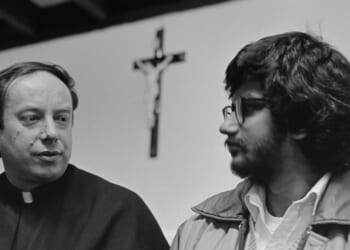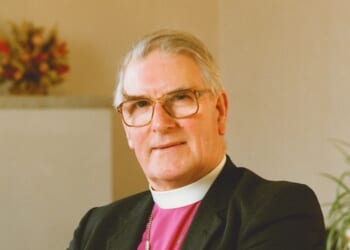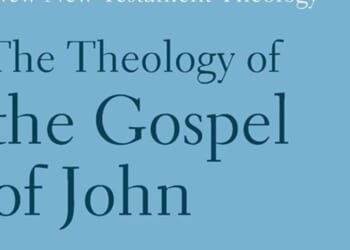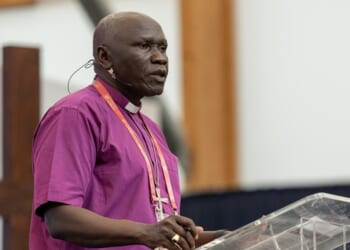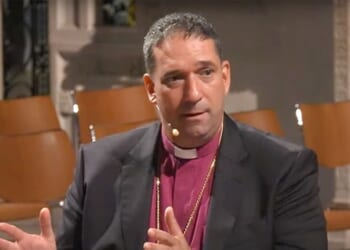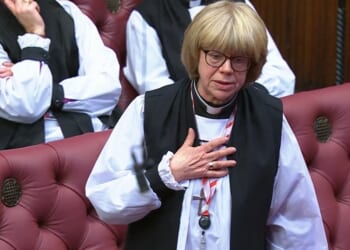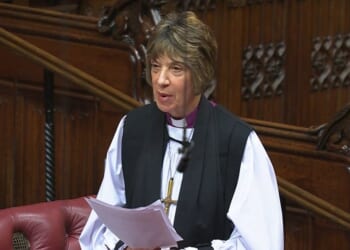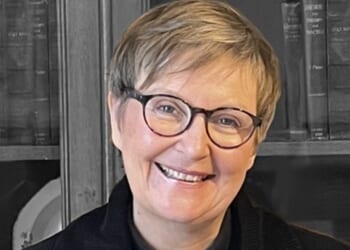AN INTERIM Bishop of Bangor is to be appointed for up to two years, to advance reform and provide a “healing presence”, the Governing Body of the Church in Wales decided in its extraordinary meeting on Tuesday.
Members voted by 75 to four (with seven abstentions) in favour of the proposal from the Archbishop of Wales, the Most Revd Cherry Vann. It follows the announcement last month that the Electoral College in Bangor, after considering names, had not felt able to shortlist candidates for a new diocesan.
The motion suspends the process for the election until — at the latest — one calendar month after the first meeting of the Governing Body in 2028, and authorises the Archbishop to bestow the title “Interim Bishop of Bangor” on a bishop, who must come from outside the Church in Wales.
The appointee, the Archbishop said, would offer “leadership and direction for a diocese that has gone through a considerable amount of trauma, not just in terms of what has happened, but because of adverse publicity that the diocese has attracted as a result”.
Many speeches from Bangor representatives praised the plan. The Archdeacon of Meirionnydd, the Ven. Robert Townsend, said that the diocese had looked at media reports about the cathedral “with the same bemusement and horror as everyone”, and that the diocese should not be judged by these. “Good things are happening, and the Holy Spirit is still very much at work in our diocese.”
The “real reason” for the day’s meeting had happened in the year preceding Archbishop John’s retirement. “A desire from one person for almost total control is never healthy, and it would become a theme in our diocese. If you want to control something, allow chaos to reign underneath you and ensure the only way to get an answer is through yourself.”
The appointment of a cathedral Sub-dean who was also the diocesan secretary had “created many conflicts of interest . . . You rightly ask, ‘Why didn’t anybody do anything about this?’ People did try. But when you ask a question and later discover that the response was economical with the truth, it’s very difficult. . . People did try to push back, but you made yourself very unpopular if you did.” He expressed gratitude to those who had blown whistles.
The main challenge to the motion came from Chris Dearden, a lay member for Bangor, who said that the diocese — which seemed to have taken “dysfunctionality to new levels” — “needs experienced leadership now. . . The light of Christian witness is still flickering away in the darkness in Bangor diocese. But the night is very black.”
Sue Henley, a lay representative for St Davids, also raised concerns, including questions about appointing someone from outside the Church in Wales, who, she said, might lack a detailed knowledge of the culture and constitution; whose arrival might “disrupt” the work already under way; and whose own work might be changed again after two years. The Bench of Bishops needed “some consistency and continuity”, she said.
Dr Barney Hawthorne, a lay member for Llandaff, was in favour of the motion but felt it “deeply ironic that, over the last 18 months or so, while a lot of what has been going on has been very evident, we have been encouraged to take time and spent probably a lot of money looking at the problem of water pollution in the rivers in Wales, and yet nothing has been done about the dirty washing which has been pushed under the carpet in our own Church in Wales”.
Responding to the debate, Archbishop Vann emphasised that the appointment of the Interim Bishop would not just be her decision, but done “in conversation and consultation with the Bangor electors” — starting with a meeting the next day — and with the Bench.
Some of the names already put forward were retired bishops in the Church of England, the Scottish Episcopal Church, and the Church of Ireland. Others were suffragan bishops in the C of E. Whoever was appointed would have the power to do “whatever radical work is required”, including “cutting our cloth” in Bangor.




